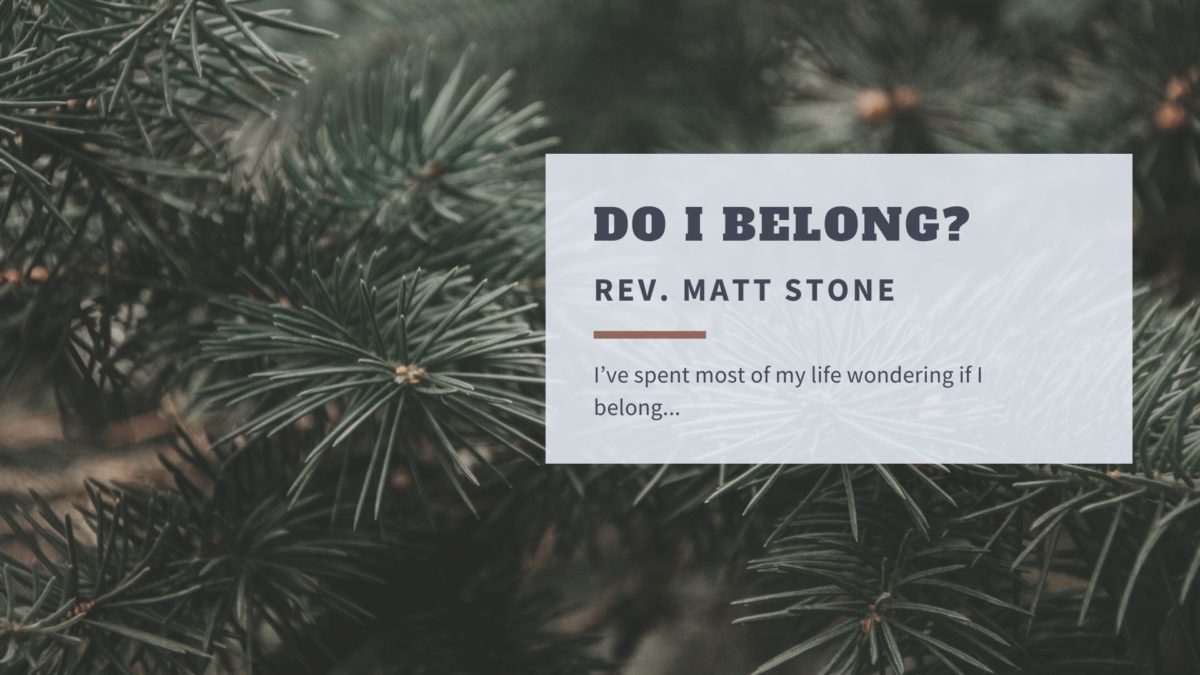I’ve spent most of my life wondering if I belong. This isn’t a ‘woe is me’ kind of thing – just stay with me for a moment. I wondered if I belonged in the new school that I went to in 3rd grade after we moved towns. I didn’t really. I wondered if I belonged in my new school in 4th grade. I didn’t really. I wondered if I belonged on the basketball, soccer, track or football teams that I played on (mediocrely). I didn’t really. I wondered if I belonged in my new middle school or my new high school. I definitely didn’t. I wondered if I belonged in my own family for most of my childhood, although I think most of that was more about me than them. The same was true of college and seminary – I’ve always wondered whether I really belong in whatever group or community with which I am associated at any given time. I know that not everyone has that enduring experience, but I also know that every one of us knows the pain of being on the outside, looking in, even if only for a moment.
That’s why the bands of cloth and the manger in Luke 2:7 are so powerful. No, they weren’t endowed with magical powers that made the baby Jesus glow with angelic light. Rather, they were powerful because of what they communicated about the nature of this gift that was given for all. If you were a wealthy, powerful, royal couple at the dawn of the first century, you weren’t wrapping your firstborn son (the most prized of all possible births) in ‘bands of cloth.’ You were using imported cloth from some far-off land that was plush, soft and colored (which could only be acquired at extraordinary expense. Additionally, you weren’t putting the prized child of your new family in a feeding trough- he’s not an animal for goodness sake! On the other hand, if you were a regular, poor, run-of-the-mill country family from Israel’s interior agricultural region who was on the move because a foreign dictator decided to count his subjects in order to determine how much money he might extract from his domain, then bands of cloth and a manger were you best friends!
It’s not that they communicate economically humble origins (although that’s true). The bands of cloth and the manger were like guideposts that pointed everyone who heard the story toward the truth that this child was one of us. At that point in history, and the same remains true today, the vast majority of the world’s population were poor and led very simple lives. Extra funds for new baby clothes and a crib was a luxury beyond imagination for the people who heard the story of Jesus’s birth. The standard practice for most of the world was to simple use what they had at their disposal. They didn’t do this because they were ignorant and didn’t care about their newborn child; it was just the way of the world, what everyone did.
So when we hear ‘bands of cloth’ and ‘manger’ pop up in the story of Jesus’s birth, we suddenly know that this child wasn’t ‘one of them’ (the rich, the powerful, the detached and uncaring). Rather, this child was ‘one of us.’ And if he’s one of us, then we must belong in the story. We belong to the story of God’s greatest gift. We belong to the family to whom this child was born. We belong to God the Father, who gave his Son so that we might live now and eternally in the present of the Holy Spirit.
This Christmas, you belong. Whether you have only occasionally felt that pain or lived with it every day of your life, the Christmas story practically shouts out to you: you belong in the family of God! Merry Christmas!


